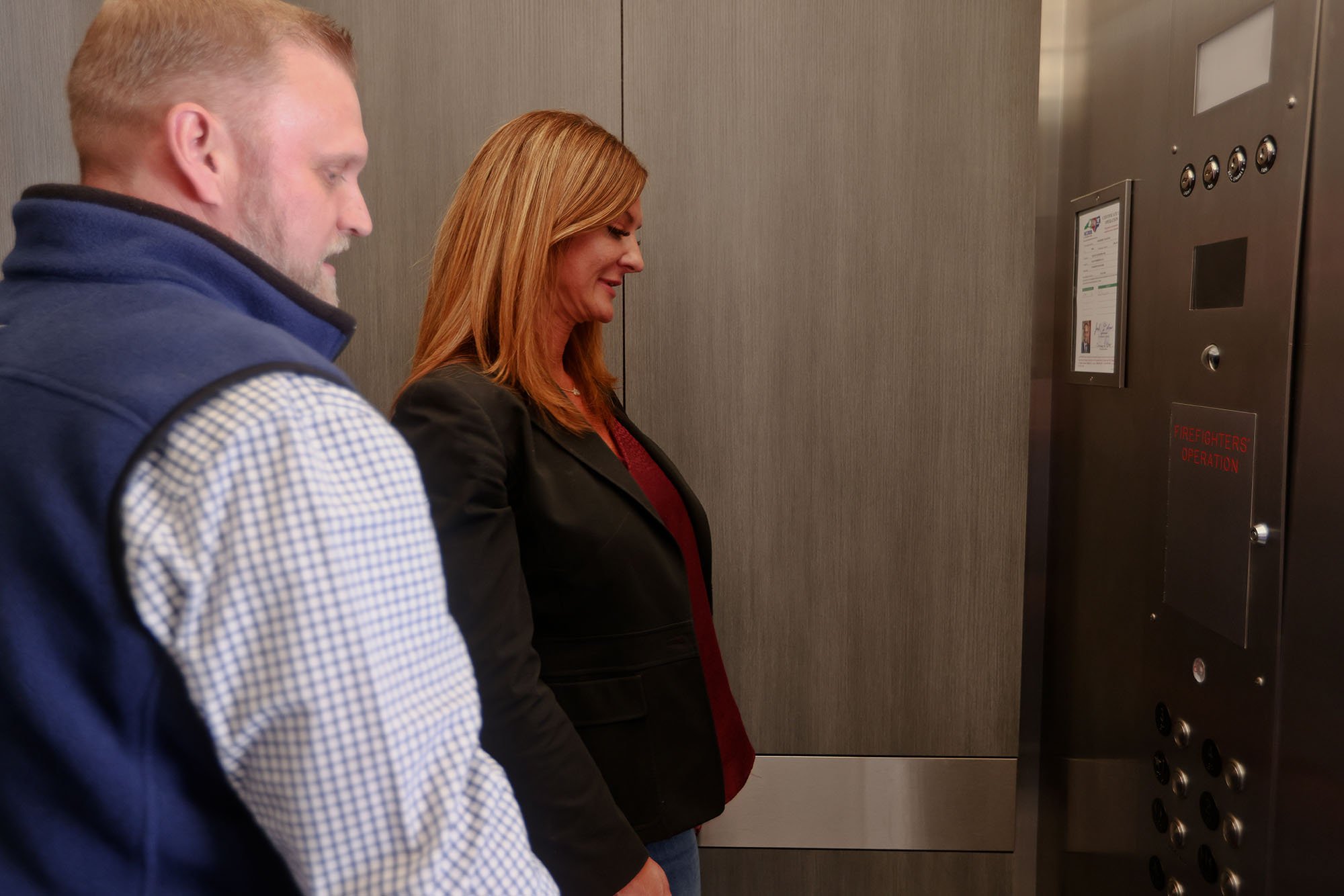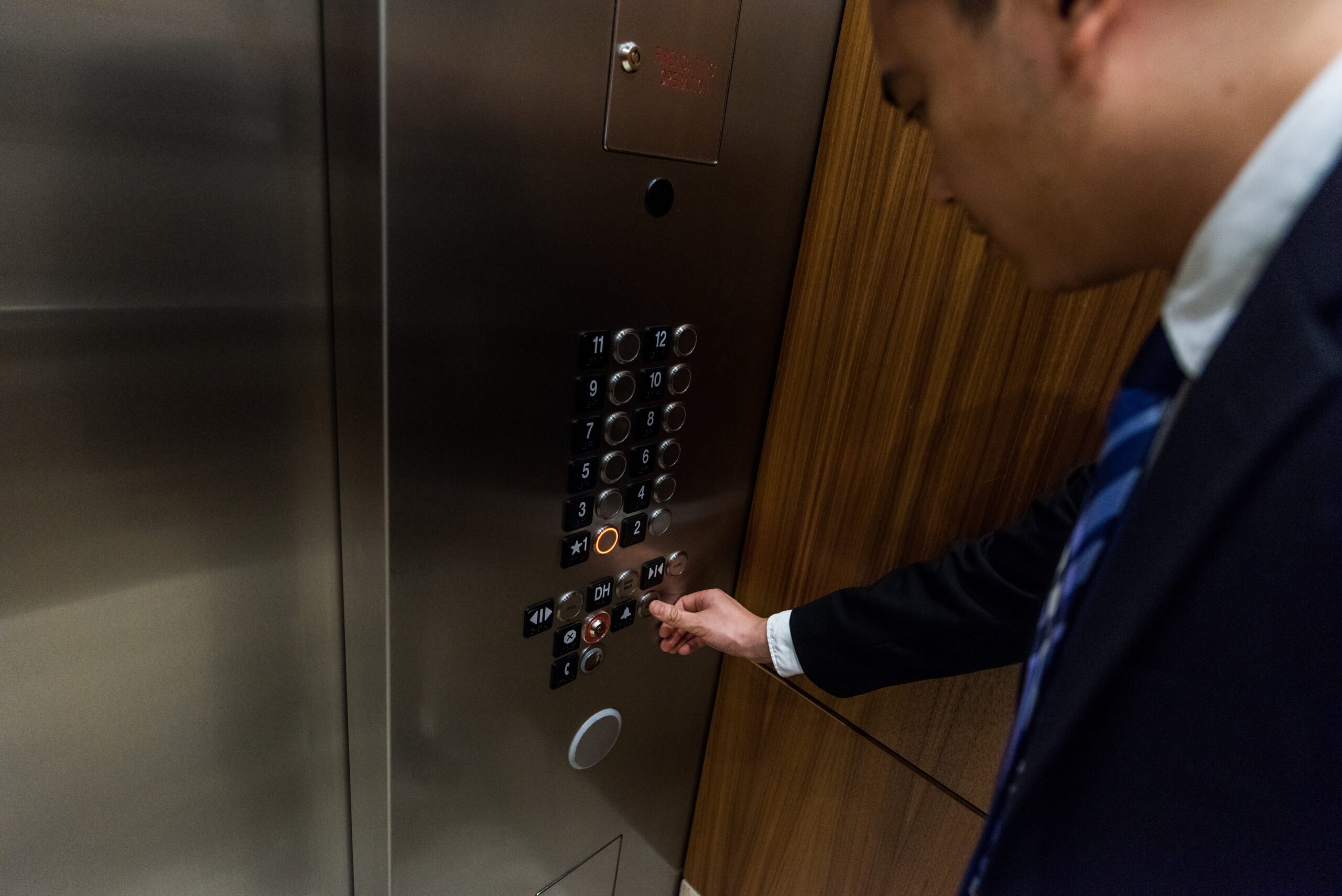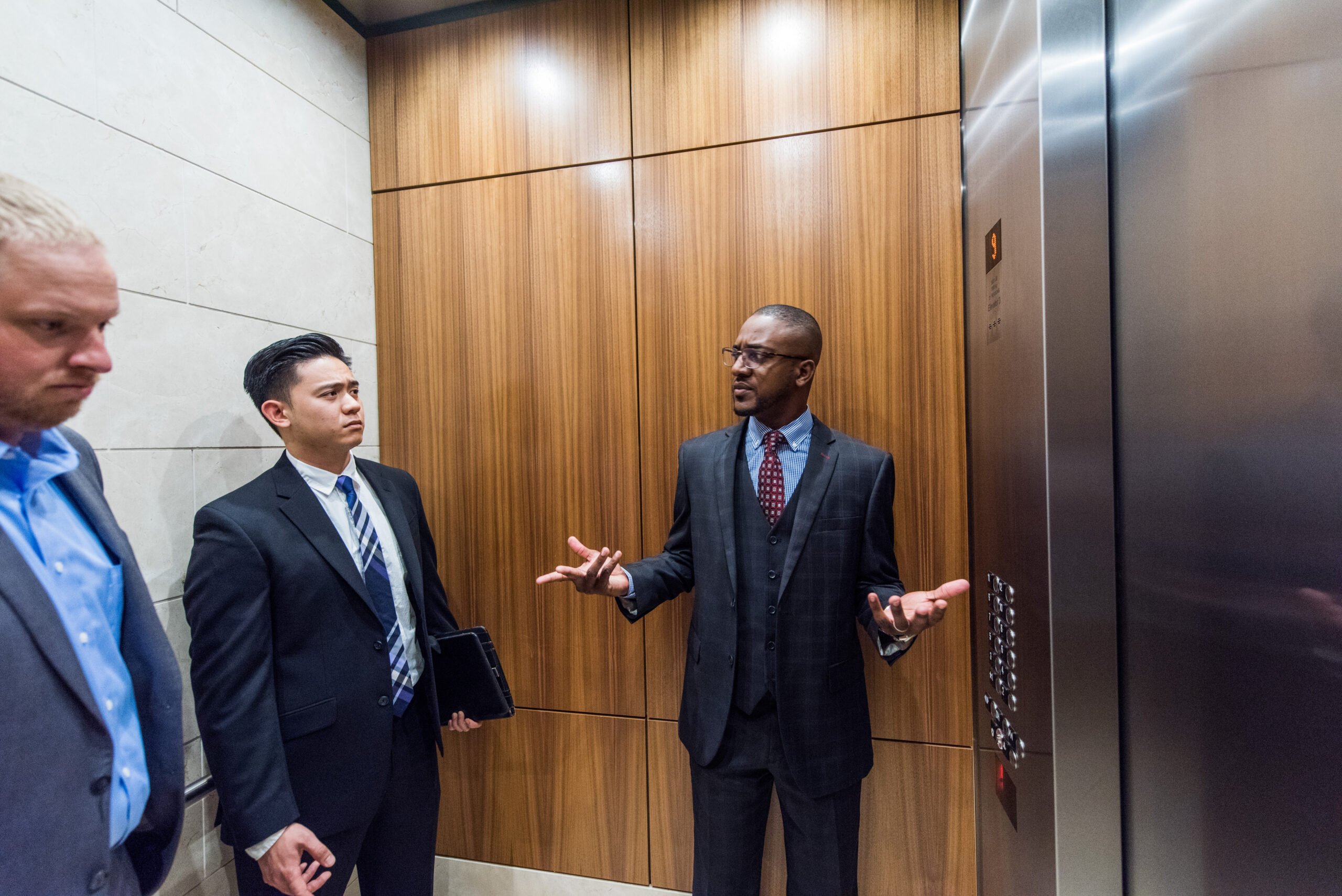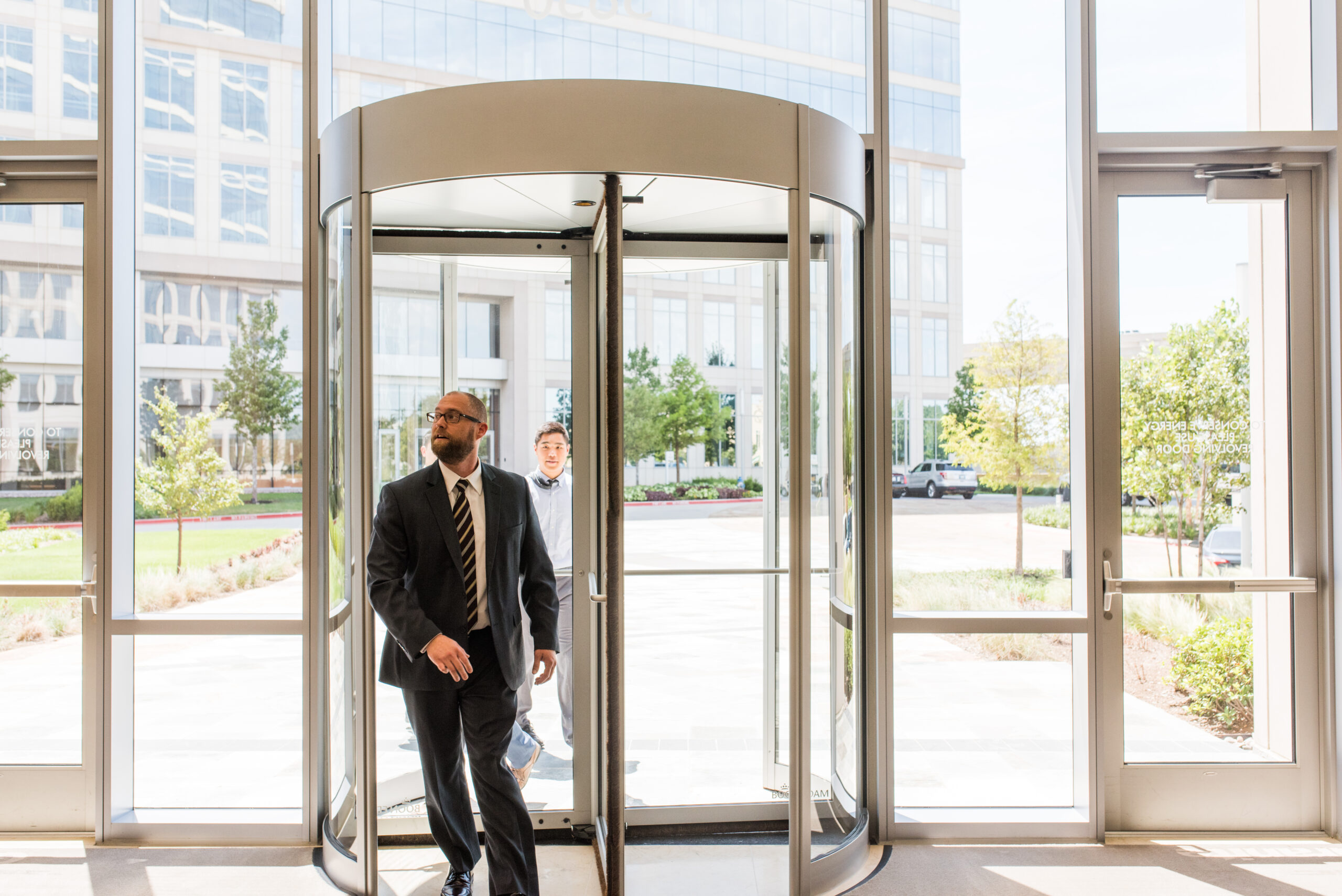BLOG CATEGORIES
Lobby Security Basics

As a property manager, you may not always prioritize lobby safety since it is one of the most public areas on property. However, this also makes it the most accessible. This creates some essential security needs. See what you may be overlooking.
In both commercial and residential buildings, a lobby acts as the transition from the public zone to the private zone. A lobby can also act as a buffer, establishing security for the people working and living in the private zone. It should be a welcoming place, but it should also be an effective function of security and access control. Overall, a lobby should convey both safety and comfort. With the right preparation, a lobby can set the tone of life safety and security for the rest of your property.
Find out how to improve safety and reduce costs at your property
Our best-in-class emergency phone + monitoring solutions provide peace of mind and are backed by decades of expertise
Learn More

2022 ELLIES WINNER
Best Supplier -
Communication System
Find out how to improve safety and reduce costs at your property
Our best-in-class emergency phone + monitoring solutions provide peace of mind and are backed by decades of expertise
Learn More
2022 ELLIES WINNER
Best Supplier -
Communication System
Keep this checklist handy when evaluating your lobby’s level of safety:
Reception desk
Lobby receptionists should have a clear, unobstructed view of the front door or entranceway. The visitor waiting area should be located off to the side and away from the receptionist view of the entrance. The reception desk should be constructed high and wide so that no one can easily reach across the desk to make physical contact with the receptionist.
Access
Keyless entry is becoming the access norm for all types of lobbies. This system can be distributed in the form of cards, keychain FOBs and smartphone apps, and they can be reprogrammed and reconfigured when needed. Many of these systems include security cameras that can keep a visitor log, including timestamps. Residents, tenants and property management can often control visitor access from their smartphones and can receive real-time notifications of visitor comings and goings.
Furniture options
There should be nothing in the lobby that can be used as a weapon, such as a heavy vase or umbrella stand.
Doors
Doors should be opened only by an approved electronic pass, or by a hidden button under the reception desk.
Elevators and stairs
Elevators and stairs that appear before a reception desk may give the visitor the impression that he or she doesn’t need to first check in and register his or her visit. Your lobby should funnel all visitors in the direction of the reception desk or check-in area with no option to forego that important step.
Lighting
Make sure your lights operate on timers so that they can turn on before people arrive and stay on if people are working or staying late. Include a backup lighting system that can operate in the event of a power outage or other emergency.
Receptacles
Avoid placing trash receptacles and mailboxes in lobbies, as they can serve as a hiding place for destructive apparatus.
Foot traffic
Employees, for instance, should have a separate entrance from visitors, with separate access control. Visitors should require an additional process for being admitted into the building. One example: video intercoms that require visitors to be identified, logged by arrival and departure, and to give a reason for their visit.
Active shooter watch
It’s a sad fact of life that the possibility of active shooters accessing buildings is increasing. All personnel should be trained in and aware of procedures for the (hopefully unlikely) event of violent, dangerous intruders. Learn more on how you can prepare for an active shooter.
Here are some other items to consider for lobby safety:
Create a security checklist.
If your property is not on a 24/7 operating schedule, create a checklist to be used by those who are the first to arrive or the last to leave. Be sure that they know how to safely open and close the space.
Post emergency phone numbers and contacts.
Everyone should know who to contact in case of trouble. Keep this list next to every phone, on speed dial and in common areas. Ask employees and tenants to load these contacts into their personal smartphones.
Make sure the lobby is slip resistant.
Wet conditions outside can cause accidents (and possible lawsuits) inside. Make sure the lobby has slip resistant tracking, especially during inclement weather. These rubberized strips can stop slips and falls in their tracks. They are often available in multiple sizes and colors, including clear and do not need any screw fasteners.
Strobe lights.
This option, complete with wall-mount bracket, can alert others on the property if there is trouble at the reception desk or in the lobby. Kings III offers a steady-on locator beacon and flashing blue strobe light. Click here to find out more.
Consider on-site security personnel.
Having actual people on watch in the lobby can act as a crime deterrent, but not all security staff are trained the same way in how to respond to crime. They can also be an expensive budget item, usually billed at hourly rates. One costly but effective alternative: video monitoring.
Determine if video monitoring is the right option for your lobby.
Just the mere presence of video cameras in the lobby can serve as a crime deterrent. It can also record the comings and goings of all staff, tenants and visitors if needing to piece together a backstory to a crime. However, there are some shortcomings to look out for:
- There are blind spots that video cameras cannot see.
- Video surveillance is often used as a reactive rather than a proactive measure- it is not typically going to lessen an emergency that is in process.
Customize your property’s unique life safety plan with our free guide >>
Install an emergency communications system.
Emergency phone systems are required by law in elevators, but these are not always easily accessible from the lobby. In the event of an emergency, tenants of your building should be able to find a nearby means to help. An emergency help phone near your lobby can save lives and prevent crime by contacting authorities faster than a phone app or smartphone (click here to read why). An emergency phone is programmed to directly access help without the risk of bad reception or a dropped call. Professionals can also provide medical help until medics arrive, helping to save lives and alleviate panic. Make sure that your tenants know where all emergency phones on the property are located and are aware of the benefits associated with using one, perhaps by providing signage in the lobby.
Kings III’s all-inclusive services provide you with the option of a complete package of code compliant emergency telephone equipment, installation and maintenance, plus 24-hour state-of-the-art monitoring and dispatch services.
To learn more about how Kings III can assist in upgrading safety measures in your lobby as well as on your entire property, visit www.kingsiii.com.
CATEGORIES TAGGED
ELEVATORS
PROPERTY SAFETY
CATEGORIES
KEEP LEARNING

What an Emergency Dispatcher will Most Likely Ask You
When suddenly faced with an emergency, you may immediately feel frightened and helpless. An emergency communications system can help reduce or eliminate those reactions by providing immediate assistance. Here's what you can expect on the other side of a call you place from an emergency phone.

Kings III Makes The Dallas Morning News Top 100 Places to Work List Becoming a 4x Winner
We're honored to be recognized by our employees and The Dallas Morning News by making the daily newspaper’s Top 100 Places to Work list for the 4th year in a row, falling in at 26th in the midsize companies category.

January 2024 Elevator Code Updates in Florida
Florida property managers have finally completed DLM requirements in their elevators (hopefully). But wait, there's more! Florida will adopt ASME 2019 starting January 1, 2024. Learn what this means, how you can comply, and get guidance from our code experts.

Survey Reveals Gaps in Building Emergency Communications Plans
A recent survey of property management professionals revealed that while more than 60 percent of respondents were aware that telecom companies are phasing out POTS (Plain Old Telephone Service, also known as analog copper land lines), nearly half reported their elevator emergency communication systems are still based on this endangered technology.

Successful Hotel CO Inspections
A CO is a vital requirement before opening your new-build/renovated hotel. One area we often see overlooked within the process is telecommunications. To help get you started, we’ve compiled a checklist of key telecom-specific items to consider that may be subject to inspection.

How is Elevator Liability Defined?
One of a building owner’s worst nightmares: a passenger gets into an elevator in perfect health but ends the ride with a serious physical or psychological injury. Thankfully, this is an extremely rare scenario, but all those involved in building management should know exactly how to define elevator liability and take action if an incident occurs.

How is Your Premise Liability Law IQ?
A premises liability lawsuit holds a property owner responsible for any damages arising out of an injury on that person or entity's property. Keeping your property safe is, therefore, your number-one priority. Here's exactly what you need to know.

Kings III of America Announces CEO Transition
Kings III today announced that as part of a thoughtful succession process, Dennis Mason will be stepping down as Chief Executive Officer and transitioning to Senior Advisor. Norm Nelson, who has served as Chief Operating Officer since 2018, will succeed Mr. Mason as CEO.

Apple iPhone Setting Ties Up 911 Call Centers
A recent news story highlights how an iPhone safety feature may be adversely affecting 911 call centers. Here's what property managers should be thinking about when it comes to their own onsite emergencies.



